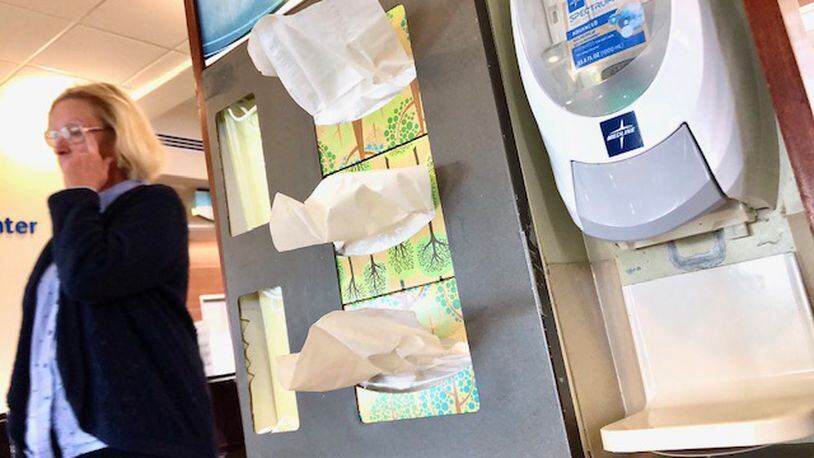MORE: Holiday flu cases spike; ways to protect yourself
Dr. Ryan Babienco, an emergency medicine physician, said people who are not having severe symptoms such as shortness of breath can likely be treated at home or can call their family doctor or visit an urgent care if your provider isn’t available.
“That’s the appropriate place to be treated if you are not experiencing some of the more severe symptoms, especially the one we worry about the most is that real bad shortness of breath where you’re coughing and coughing and you can’t walk across the room,” Babienco said.
When the emergency department is at capacity, all patients are still seen but patients with less serious symptoms have long waits while patients with more critical needs are seen.
At Grandview Medical Center, also in Dayton, a spokeswoman said Friday afternoon that the hospital “is experiencing a surge in flu cases today, but they are managing the increase in patients.”
MORE: Here’s how CareSource scored on latest Ohio report card
Symptoms of flu can include fever, cough, sore throat, body aches, headache, chills and fatigue. Flu vaccination is available at most health care providers’ offices, local health departments and retail pharmacies. There are no flu vaccine shortages across Ohio.
Flu vaccines are encouraged for everyone six months and older. Other ways to avoid getting or spreading the flu include: washing hands frequently or using alcohol-based hand sanitizer; covering coughs and sneezes with tissues or coughing or sneezing into elbows; avoiding touching eyes, nose and mouth; and staying home when sick.
“Getting the flu vaccine is the safest and most effective way to prevent the flu for everyone 6 months and older,” said Dr. Mark Hurst, Ohio Department of Health medical director. “Flu hospitalizations could still be on the rise. You need to protect yourself, your friends and your family and get a flu shot now if you haven’t already.”
The federal Centers for Disease Control and Prevention recommend that health care providers prescribe one of two antiviral drugs as a second line of defense as soon as possible to patients with confirmed or suspected influenza who are hospitalized, have severe illness, or may be at higher risk for flu complications.
“These antiviral medications can reduce the severity of the flu and prevent serious flu complications,” Hurst said. “They work best when started within two days of getting sick.”
MORE: Kettering tissue bank ships skin grafts to New Zealand volcano victims
From Dec. 22 to Dec. 28, there were 387 new influenza-associated hospitalizations reported in Ohio. There have been 1,003 flu-associated hospitalizations reported in Ohio so far this flu season compared with 555 reported during the same time period last year. Flu activity typically peaks between December and February.
On Friday, Ohio Department of Health reported the state’s first flu-associated pediatric death of the 2019-20 flu season, a 16-year-old girl from Cuyahoga County.
Public Health Immunization Clinic
Flu vaccines are available by appointment through Public Health - Dayton & Montgomery County at the Reibold Building at 117 S. Main St. Call 937-225-5700 to make an appointment.
About the Author
